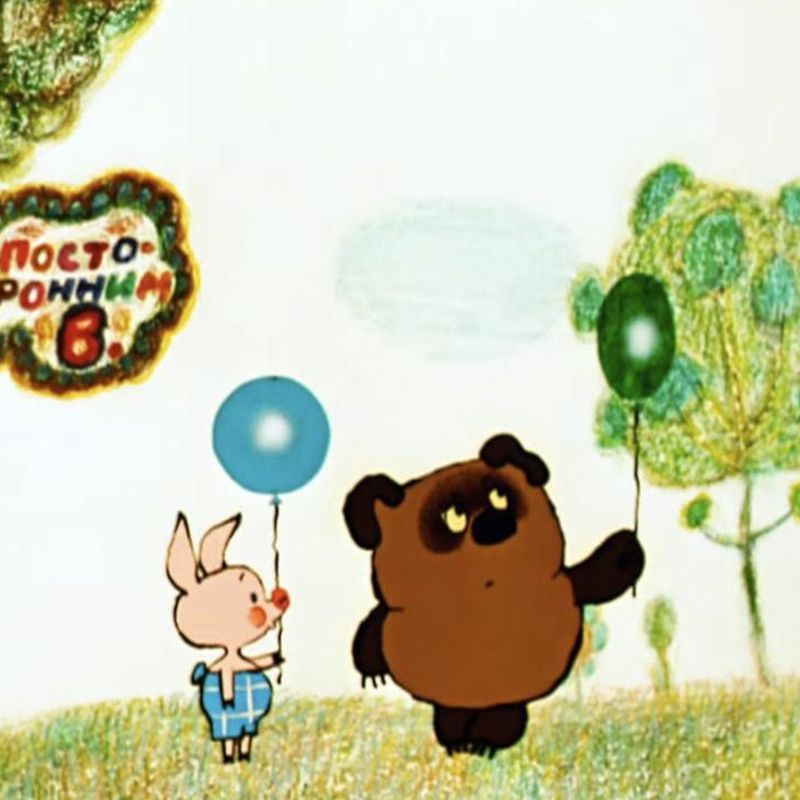In honor of осення хандра (fall melancholy), me and my language scholar had a quick yet inspiring discussion on the aforementioned word. You see, the word “хандра” is quite unique in its translation simply for the fact that there’s none.
Continue reading “Как сказать “…”?”Turkisms in Russian
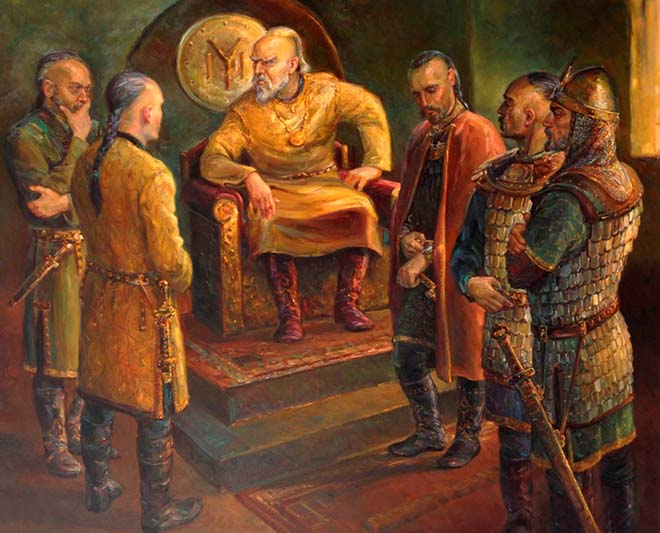
Russian – the strong and mighty language – has an estimated range of 150.000 to 500.000 words (depending on what is counted). And many of them sound challenging, some might sound “harsh” while others don’t sound like Russian at all.
It’s because they’re not!
Continue reading “Turkisms in Russian”Non-trivial way to improve your Russian and make everybody believe you’re a native speaker (sort of….)
It’s never been a secret — Russian is notoriously challenging, filled with confusing conjugations and challenging slang that leaves even the most experienced learners crying, screaming and pulling their hair.
But you don’t have to jump straight into banging your head with a thick Oxford dictionary — there are multiple easy – perhaps even childish – ways to upgrade your Russian skills.
Continue reading “Non-trivial way to improve your Russian and make everybody believe you’re a native speaker (sort of….)”They play spoons in Vermont?…
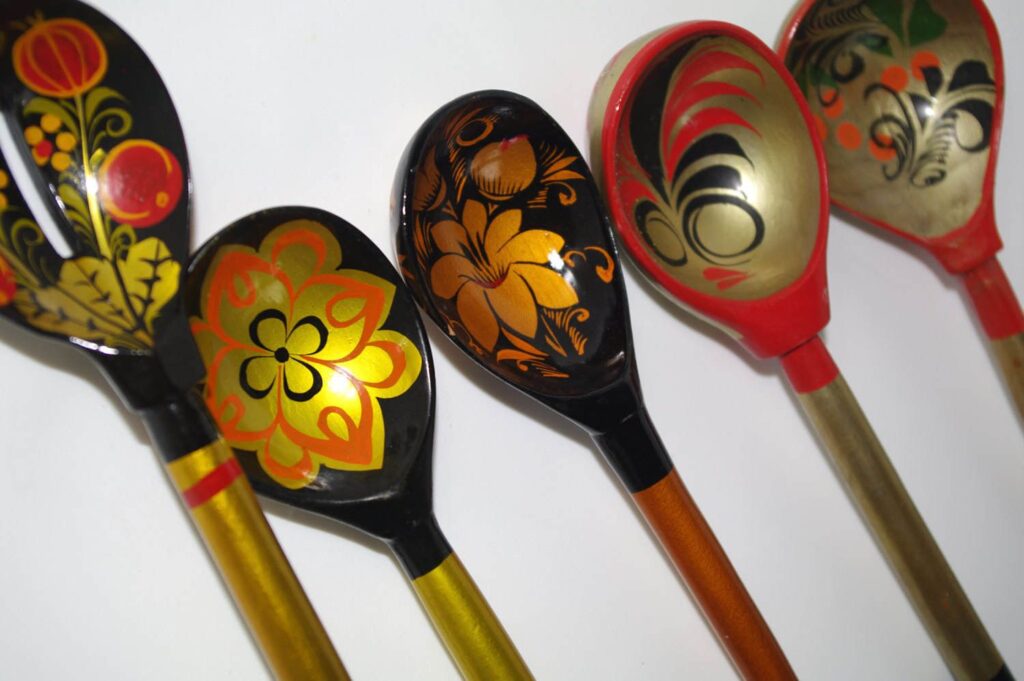
As a way to engage more of our students with language programs at Reed, we will be starting a series of interviews with our dear language tutors. Miriam (or Masha!) has a lot to share about her experience!
There is always a backstory to every language journey. Tell me more about your background and what inspired you to undertake a not-so-easy language like Russian.
Learning languages is my thing,especially being a linguistics major. I started with Hebrew, French, some Spanish and moved on to German. And coming to college I wanted something totally different which was Russian – I loved it, it’s my absolute favorite.
Continue reading “They play spoons in Vermont?…”Meet Miriam! (or Masha)

Hi and привет! My name is Miriam, and I am a sophomore linguistics major.
I took Russ 111 in the fall of ’23 with Zhenya. As a recent first-year Russian student, I know what is expected and will happily help with homework, practicing conversation, or checking grammar. I look forward to working with you!
LangLabbie note: Drop by the Language Lab to see Miriam’s hours!
Meet our charming and amazing Russian tutor – Nina Gopaldas!
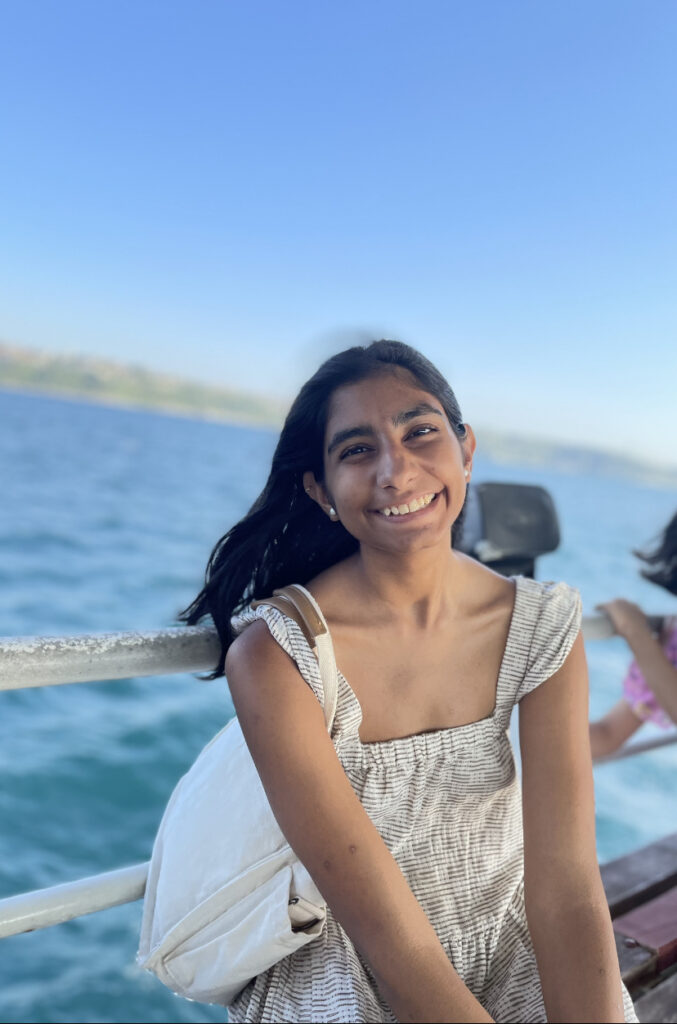
Hi there! My name is Nina (she/her), and I am a senior comparative literature major. Learning the Russian language has been the highlight of my Reed experience, but I understand that learning a new language can be a long and difficult process. I am available to help make that process a little easier! I am always happy to practice grammar, writing, and speaking with you. If my schedule doesn’t work for you, please shoot me an email! We can find time outside my available hours.
Привет! Меня зовут Нина (она/её), и я — студентка четвертого курса. Моя специальность — сравнительная литература. Изучение русского языка было самой яркой частью моего опыта в Риде, но я также понимаю что изучение нового языка может быть долгим и трудном процессом. Я готова помочь с трудностями процесса. Я всегда рада практиковать грамматику, письмо, и разговорную речь с вами! Если мое расписание вам не подходит, напишите мне на имейл, и мы найдём другое время встретиться.
Note from a Labbie: Nina tutors for Russian 111, 112, 120 as well as 220. So if you’re thinking about studying Russian or currently in the process – don’t miss out on practicing with Nina and learn from her vast experience!
Non-Russian Russian Music for Your Consideration
One thing I’ve learned in my year learning Russian is that the Russian-speaking world is very much massive. With speakers of the language spanning across the entirety of the Post-Soviet Union and its allies, it’s almost impossible to find Russian language books, shows, movies, and music without finding some that are decidedly not of Russian origin. So for your consideration, dear reader, I have compiled a list of some singers and bands from outside of Russia that you can add to your Russian language playlist. Keep in mind that while none of these songs are obscene by any means, you may want to find translated lyrics before playing them in public.
Continue reading “Non-Russian Russian Music for Your Consideration”Investigating Narrative Levels in the Short Stories of Vladimir Nabokov
For a semester project here in the language lab, I chose to investigate narrative levels and how they interact and change in stories. To do this, I attempted to replicate a project published in The Journal of Cultural Analytics, a journal focusing on the intersection of data and human action. The project aimed to understand how narrative levels work, as well as how uniformly standard definitions of them could be identified by different scholars in different places. The project lays out three main types of narrative that deviate from the main speaker, narrator, or story:
Uninterrupted narrative: this is just a narrative by itself. It has the same speaker, the same time period, and the same point of view.
Embedded narrative: A story within the original narrative. The original narrative will always signal a reason for an embedded narrative. These typically take place in dialogue, when a character is prompted to tell a story.
Interruptive narrative: a structural separate narrative in the midst of the original narrative. It is usually signaled by some sort of stopping point in the original narrative, such as a chapter end or a section break, and often changes narrator or time period. Unlike the embedded narrative, there is nothing within the original narrative that prompts an interruptive narrative.
Continue reading “Investigating Narrative Levels in the Short Stories of Vladimir Nabokov”Film Recommendation: Зеркало (Mirror)
Andrei Tarkovsky is one of, if not the most famous Russian film director of all time. One of his most beloved films by Russian people, Зеркало (1975) is a semi-autobiographical sequence of clips playing with memory, war, and daily life in Moscow.
The film features stunning creative techniques, such as Tarkovsky’s famous long shots. The one above is considered not only one of his best shots, but one of the best in film history. Other techniques include color schemes and themes such as the mirror, time, and poetry, which is read by different characters and narrators throughout the film.
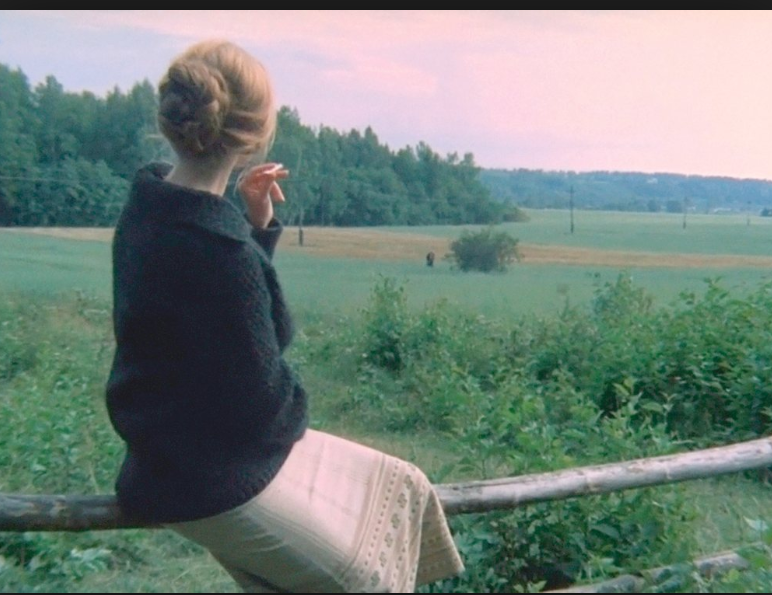
The plot is kind of tricky to explain. A dying poet is the narrator (something that isn’t revealed until the end), but the story is far from linear or clear. The scenes switch between different time periods, and it’s sometimes difficult to keep up with which one you’re actually in.
I’m no film buff, but this is definitely one of Tarkovsky’s most important works. He’s a hard director to understand no matter what, so you might as well start here! The Russian is fairly hard to understand, and I did need the help of subtitles to understand what was going on.
Museums in St. Petersburg
If you’re planning a trip to Russia soon or hoping to go there eventually, museums are a great way to learn about a city’s history and culture. Of course there’s the Hermitage in St. Petersburg: Peter the Great’s old palace that is now one of the largest art museums in the world. If you go to Russia’s cultural capital, you’ll have to stop by that one, but here are a few others that you can’t miss.
The Russian Museum
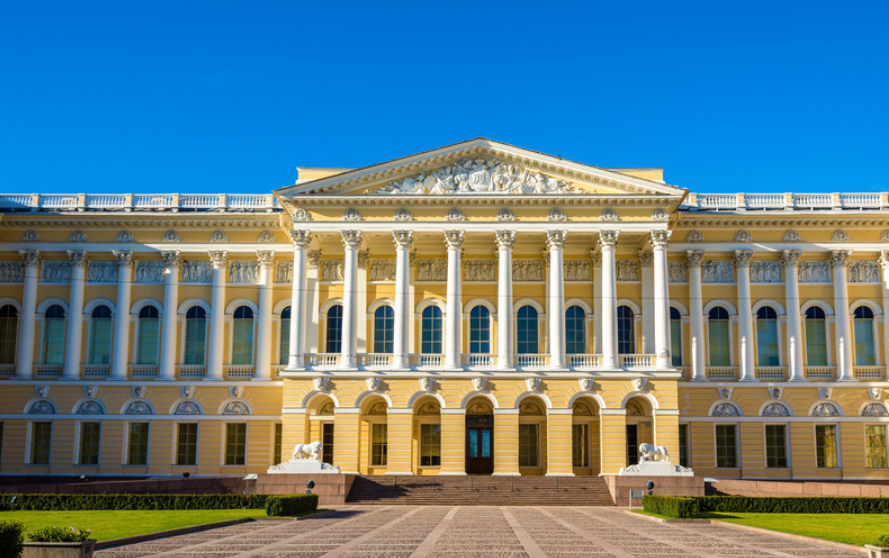
Established by Tsar Nicholas II, the Russian Museum is the first and largest collection of Russian art in the world. It is housed in the Mikhailovsky Palace right off of Nevsky Prospect by the Gostini Dvor metro stop. The collection features Russian art from the 10th to the 21st centuries, along with a sizable amount of modern art from other countries. You can find names from Rublev to Picasso, and the layout is much less intimidating than that of a big museum like the Hermitage.
The Menshikov Palace
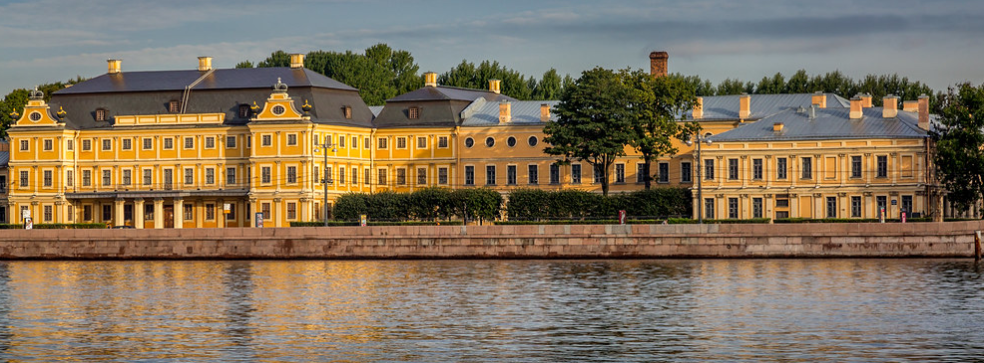
Built for Alexander Menshikov, a royal official and one of Peter the Great’s closest friends, Menshikov palace was the first palace in St. Petersburg, and the only one to survive from the beginning of the 18th century. The admission is free for students, and inside you’ll see rooms and furniture both from the time period of the palace and after. It’s located right on the Neva river, and is beautiful to walk around inside and outside.
Dostoevky’s House

Though only one of many house museums, this is perhaps the most famous, as it is for one of Russia’s most iconic writers. Dostoevsky was a known wanderer, drifting from house to house. This is partially his childhood building, and the last apartment he and his family lived in until his death. The museum is only a few rooms and features his own furniture and pictures from his family and daily life. After seeing this museum, be sure to check out the other house museums such as that of Nabokov and Akhmatova!
